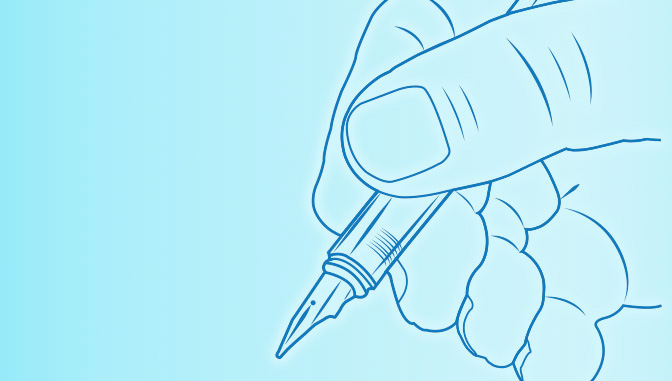Writing for the Workplace

As a business writing instructor for Excelsior College, I frequently remind my students that nearly every profession will require writing skills. Consider the consequences of careless writing in the following scenarios: An IT professional makes incorrect assumptions about the audience’s expertise and leaves out important information in step-by-step instructions; a nurse fails to clearly communicate directions for post-operative medications; a soldier neglects to proofread material sharing key information and coordinates for an upcoming exercise; a sales person creates a brochure for prospective clients that is riddled with spelling and punctuation errors.
At best, these scenarios could result in additional work, wasted time, or loss of potential business. In the case of the nurse and the soldier, the consequences could be dire. Even if your business writing does not have calamitous consequences, it doesn’t hurt to familiarize yourself with available writing resources. If you are interested in some helpful tools for brainstorming, researching, outlining, proofreading, and editing, consider the following suggestions that have helped both college students and busy professionals.
Generating Ideas: Brainstorming is an important part of the writing process so that you can plan what you’d like to say in an email or presentation. Some find it helpful to get their ideas down on paper, while others use tools like Sticky Notes or MindNode. Sticky Notes look like a Post-It note on the computer screen. Ideas can be jotted down and saved on these notes during the brainstorming process. MindNode is a mind mapping app that allows a creative approach to sorting out ideas. Either tool can be used and saved if other work tasks compete for your attention.
Avoiding Repetition: If you feel there is too much repetition in your writing or that you’d love to hear an alternative to the word awesome, check out the free Power Thesaurus app. Simply enter the word you want to replace, and a list of alternatives appears. Before long, you’ll be on your way to breathtaking, enchanting, and inspiring written material.
Proofreading and Editing: Proofreading and editing are important components in the writing process. Typos or grammatical errors can make professional work unprofessional and, in some cases, be downright embarrassing. If you are confused about how or when to use punctuation or need help with spelling, consider using Grammarly. Another helpful editing resource is the Hemingway Editor app. Named after the man who brought us a 424-word sentence, this app assists with sentence structure and avoiding passive voice. The Hemingway app helps with readability and, like Grammarly, it corrects your work.
Another editing practice is reading your work aloud to see if what you wrote matches what you think you wrote. Adobe Reader or the Natural Readers app can read your work back to you, allowing you to listen for clarity and comprehensibility.
Do you ever wonder whether to use affect or effect? Unsure about when to use less and fewer? Khan Academy has tutorials to help writers avoid common errors and short tests to check knowledge.
Hit the Books: While these tools provide valuable guidance, I feel that reading is a fantastic way to improve your writing skills. I say that because, after nearly two decades of helping college students with written work, it is immediately apparent if the student is an avid reader. I’ve also found that both busy students and busy professionals will carve out time to read and enjoy American humorists like Mark Twain, David Sedaris, Dorothy Parker, and Haven Kimmel.
If you are interested in books specifically designed to help you with business writing, consider investing in “Grammar Girl’s Quick and Dirty Tricks for Better Writing” by Mignon Fogarty (or check out the website) or “Business Writing Today” by Natalie Canavor. Some of my undergraduate and graduate students reported that classroom texts like “The Bedford Researcher” by Mike Palmquist and “A Writer’s Reference” by Diana Hacker and Nancy Sommers have remained on their desks long past graduation.
Why All the Fuss?: Whether we like it or not, we will be judged by how we write. Unfortunately, people make assumptions about our education level, expertise, or even our attention to detail if we are sloppy, inaccurate, or inarticulate. Consider using some or all these tools for a writing refresher. Remember, before you put your signature on any document, ask yourself if it will leave your employer with an impression of you as an educated, organized, and responsible communicator.


